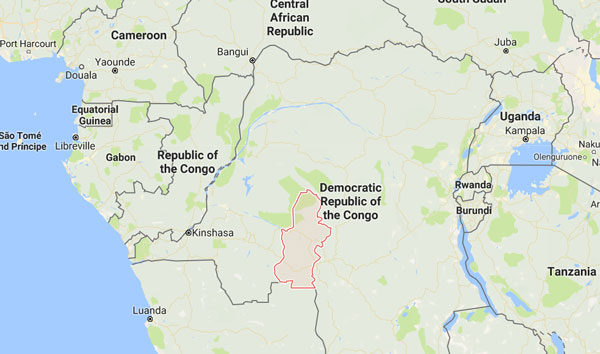
United Nations, United States | AFP | France’s ambassador to the United Nations warned Tuesday that drastic cuts to the UN peacekeeping mission in the Democratic Republic of Congo would be tantamount to “playing with fire” as the country faces election turmoil.
France has circulated a draft resolution to renew the mandate of the UN peacekeeping mission, but is facing scrutiny from the United States which is seeking cuts to UN peace operations.
“The DRC is at a crossroads,” Ambassador Francois Delattre told reporters ahead of a Security Council meeting on the situation in the vast, resource-rich African country.
The country’s first peaceful political transition through elections and the protection of civilians are at stake, he said.
“We should not be playing with fire when it comes to such high stakes,” said Delattre.
UN Secretary-General Antonio Guterres has asked the council to boost the UN mission, known by its acronym MONUSCO, by up to 320 UN police and to maintain the current level of military troops.
The United Nations has 19,000 soldiers, police and military observers deployed in the DR Congo, its biggest and costliest peacekeeping mission.
Delattre said negotiations were under way on the troop levels. “Reform to make it more efficient, yes. Reform to break it down, certainly not,” he said.
The council is scheduled to decide on MONUSCO’s mandate during a meeting on March 29.
The United States, by far the biggest financial contributor to UN peacekeeping, is seeking cuts to reduce its share of support for the missions.
This year, the United States will be providing nearly 29 percent of the $7.9 billion budget for UN peacekeeping.
In his report to the council, Guterres said 2017 will be a “crucial year” for the DR Congo as it heads toward elections.
After months of violence, the influential Catholic Church brokered a deal in late December to pave the way for elections, but the agreement has been bogged down in disputes over the appointment of a new prime minister.
Elections would bring an end to the rule of President Joseph Kabila, in power since 2001.
 The Independent Uganda: You get the Truth we Pay the Price
The Independent Uganda: You get the Truth we Pay the Price





